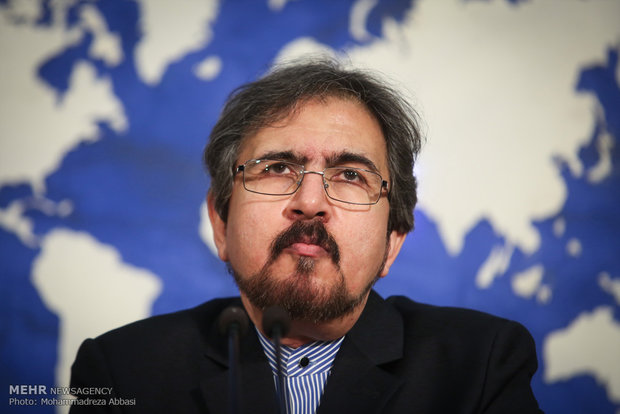ID :
428025
Mon, 12/12/2016 - 08:57
Auther :
Shortlink :
https://oananews.org//node/428025
The shortlink copeid
British, Saudi FM's anti-Iran remarks seek projective goals

TEHRAN, Dec. 12 (MNA) – Iran's foreign ministry spokesman said British and Saudi FMs' anti-Iran baseless projective remarks seek to cover up their destructive role in supporting the Takfiri terrorism and committing widespread crimes against humanity in the destructive war against the people of Yemen.
There is no doubt that in spite of opposition from the majority of world public opinion and all shouts of protest arising from vigilant conscience around the world over the use of weapons in the war against the Yemeni people, the authorities in Britain still continue to sell deadly weapons to the aggressive countries involved in the war against Yemen, and to the main sponsors of self-made terrorists, Bahram Ghasemi noted.
He also described the repetitive claims made by Saudi Foreign Minister Adel al-Jubeir over Iran's link to Al Qaeda and Takfiri elements absurd and ridiculous.
"The claims results from their failure to grasp this simple point that the strength of the Islamic Republic of Iran is in its security strategy independence and lack of any links between Iranian community with terrorist and extremist thoughts, two advantages that Saudi rulers suffer from their lack," Ghasemi underlined.
Addressing the joint presser on Sunday, British Foreign Secretary Boris Johnson, who had told a conference in Rome that Saudi Arabia and Iran were “puppeteering” in the Middle East by supporting rival sides in regional conflict, said he was concerned about the suffering in Yemen, where a Saudi-led coalition has been accused of rights abuses.
In a joint press conference with Johnson, Saudi FM Jubeir, without providing any evidence, accused Iran of supporting terrorism and interfering in the internal affairs of other countries. He also claimed that Tehran had ties with al-Qaeda terrorists and that the group’s leaders had fled to and been living in Iran since 2001. Johnson, meanwhile, said London and Riyadh share similar stances on what he described as the Iranian threat, particularly in Syria and Yemen.





